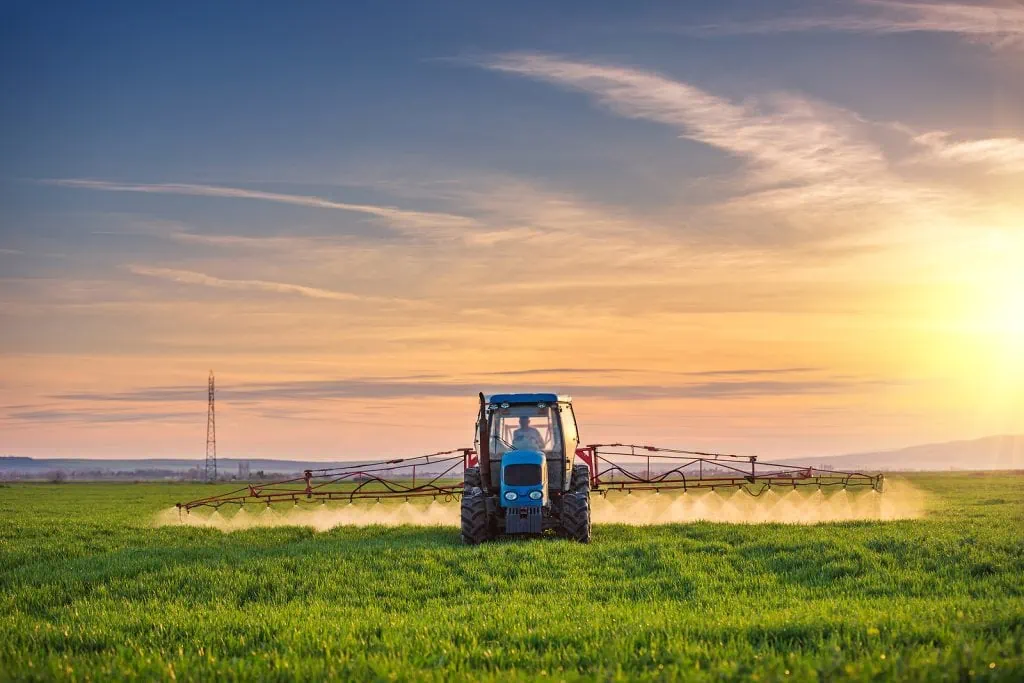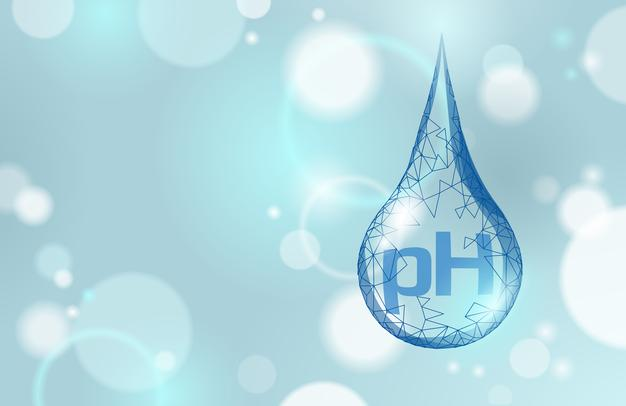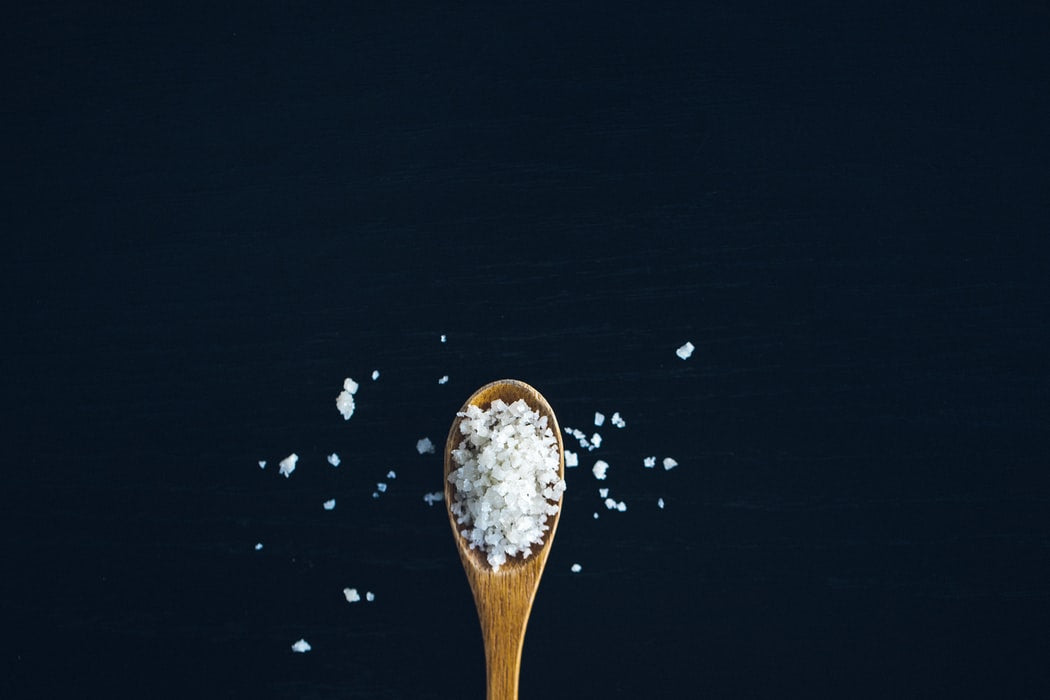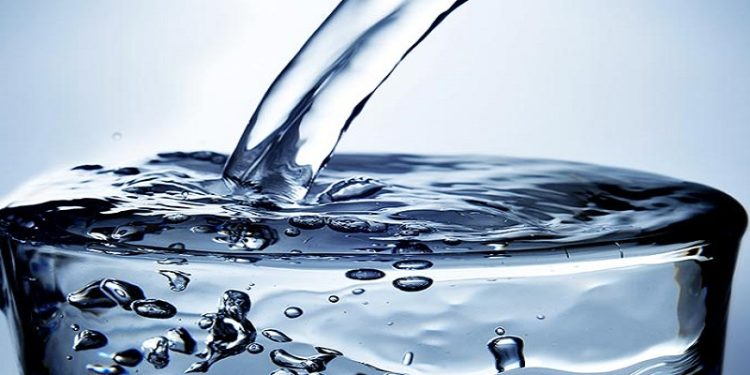Since ancient times, many farmers have relied on organic fertilizers to keep their soil healthy and productive. But with the development of synthetic petroleum-based fertilizers, used to provide plants with nutrients quickly, farmers and homeowners began to rely more on chemical/inorganic fertilizers than with natural, healthier alternatives such as manure, organic fertilizers…

With this shift toward synthetic fertilizers, along with abuse and misuse, toxic fertilizer runoff has become a serious cause of pollution, degrading the natural environment, causing leaking countless potentially dangerous chemicals into aquatic ecosystems.
If you want to learn more about fertilizer runoff and its effects on drinking water quality, keep reading to understand what it is, what happens when you drink water containing fertilizer, and how to remove it. fertilizer compounds from your drinking water.
What is fertilizer?
Fertilizer is a chemical or natural substance added to soil to increase fertility. Like humans, plants need different nutrients to grow. Although our nutrients come from the different foods we eat (vegetables, fruits, dairy, meat, grains, etc.), plants get most of the nutrients they needed from the land. However, some soils lack the nutrients needed for plants to grow or the nutrients are bound to the soil in a form that makes it difficult for plants to use. That’s why people use fertilizers for plants and crops.
Fertilizer is applied to the soil to provide plants with essential nutrients (mainly nitrogen, phosphorus, and potassium) in a form that plant roots can easily use. It is often added to soil when sowing seeds or young plants to help them establish.
Fertilizer wastewater: A growing threat to water quality and human health
Fertilizer can be added to the soil throughout the plant’s life cycle to help the plant stay healthy and grow. However, too much fertilizer can kill plants, and excess fertilizer can run off into streams and lakes, causing toxic algal blooms that are harmful to aquatic life, even humans and animals. pet. Excess fertilizer runoff from lawns and agricultural applications also contributes to “dead zones” in coastal areas.
Wastewater often contains many nutrients from fertilizers. But because runoff is often a negligible source of pollution, it can absorb other unwanted elements as it travels to its final location, including sediment, bacteria, pesticides, and metals. heavy type, etc. Unfortunately, runoff often ends up in groundwater and local waterways, contaminating them and possibly reaching our drinking glasses. Once ingested, it can cause severe illness and even death if not filtered out.
What causes fertilizer runoff?
Even though plants get what they need from fertilizer, it doesn’t always stay where it was applied. Instead of staying in the field, or garden, they can flow to other areas, potentially contaminating groundwater and surrounding soil.
Fertilizer runoff can occur due to the following reasons:
- Heavy rain: Heavy rain can wash fertilizer out of the soil around plant roots, leaching it into groundwater or contaminating soil in other areas with chemicals.
- Over-irrigation: If agricultural fields or garden soil become saturated with water, the excess water will run off onto drier soils that can absorb more water, carrying fertilizer with it.
- Using too much fertilizer: When healthy, well-growing plants are fertilized, nutrients not used by the plants run off with subsequent showers or waterings, possibly ending up in streams. streams and reservoirs. The same thing happens when too much fertilizer is applied to plants. As the plant’s roots become saturated, the remaining fertilizer will leach into less saturated areas.
- At the wrong time: Fertilizer applied to frozen or partially thawed soil cannot penetrate the soil quickly. As a result, it is capable of running on hard ground until it reaches a more hospitable environment, such as a lake, stream, river, or warmer soil. Furthermore, if you fertilize where grass and other plants are dormant, their roots will not be able to absorb the fertilizer, causing rain to wash it away faster.
- Improper disposal of yard waste: If you have recently fertilized and mowed your lawn, the grass samples may contain fertilizer residue. If you dispose of them improperly, such as in a nearby vacant lot, the next heavy rain could carry those residues away and contaminate water elsewhere.
How does fertilizer runoff pollute water?
During heavy rains or floods, water from gardens or agricultural fields carries excess fertilizer from washing down storm drains, often leading to rivers, lakes, bays and other waterways.
Fertilizers that find their way into local water bodies help promote the rapid growth of harmful algae. Often, the growth is so explosive that it creates monstrous “algal blooms,” causing thick green or pale green scum or mats to form on the surface of streams, ponds, and lakes. These flowers can give off an unpleasant odor and can turn the water different colors — green, brown, or even red.
Algal overgrowth can also cause an unhealthy increase in nutrients in water bodies, a process known as eutrophication. An abundance of nutrients may sound like a good thing, but eutrophication caused by fertilizer pollution in water upsets the ratio of nutrients and disrupts the balance of plant life.
Eutrophication caused by synthetic fertilizer pollution has costly impacts on the environment and public health, such as the following:
- Some harmful algal blooms release potent toxins into the water that can kill fish, shellfish and even other plants, creating “dead zones” in the water.
- Excessive growth of aquatic vegetation can clog waterways, limiting access to fishing, boating, swimming and other recreational activities.
- When overgrown vegetation dies, its decomposition uses oxygen in the water. This can lead to “fish kills” – the death of large numbers of fish when oxygen levels drop too low for them to survive.
- As oxygen levels drop and other conditions decline, the types of plants and animals that normally live in waters may change to less desirable types. Essentially, when different species once existed harmoniously in an aquatic ecosystem, a single species can begin to dominate to the detriment of all other species.
Effects of fertilizer runoff on human health
If fertilizer spills into drinking water, it can cause serious harm to humans, especially infants, young children, pregnant women and the elderly.
They can threaten the life of newborn babies
The health effects of nitrates in drinking water are most associated with methemoglobinemia, a condition known as “blue baby syndrome.” In infants 0-4 months old, nitrates are converted to nitrites in their digestive system. Nitrite binds to the oxygen molecules of red blood cells, depleting oxygen and potentially suffocating the baby.
An easily recognizable symptom of nitrate poisoning is bluish skin, mainly around the eyes and mouth. If detected at such an early stage, methemoglobinemia is rarely fatal. It can be easily diagnosed and reversed with clinical treatment. After six months, methemoglobinemia is no longer a threat because the nitrate-metabolizing bacteria are no longer in the baby’s stomach.
They are linked to diabetes
Studies find that nitrates may increase the risk of type 1 diabetes in children. It is believed that nitrates may reduce the effectiveness of insulin in the body. If insulin doesn’t work, glucose builds up in the blood, leading to hyperglycemia. If left untreated, another condition called ketoacidosis (diabetic coma) can occur.
According to the American Diabetes Association, ketoacidosis develops when the body lacks insulin. Without insulin, the body cannot use glucose for fuel, so your child’s body will break down fat for energy.
When an infant’s body breaks down fat, waste products called ketones are created. The body cannot tolerate large amounts of ketones and will try to eliminate them through urine. Unfortunately, the body cannot release all the ketones, which accumulate in the blood, leading to ketoacidosis. Symptoms of this condition can include difficulty breathing, dry mouth, nausea and vomiting, and fruity breath odor.
They can cause pancreatic cancer
Nitrates and nitrites from processed meats, which are high in nitrates, are thought to increase the risk of pancreatic cancer. When introduced into the body, nitrates and nitrites can react with amines and amides to form N-nitroso compounds (NOC), which are carcinogenic in animals and possibly carcinogenic in humans.
Studies also show an increased risk of kidney, colon and stomach cancer in people who drink more water containing nitrates and eat more meat. Other studies have shown evidence that higher nitrate intake may increase thyroid and ovarian cancer in women.
As we also mentioned earlier, fertilizer wastewater can contain other potentially toxic elements, such as bacteria (from wastewater, dead animals, etc.), heavy metals (from rocks and soil ) and sediment, which is collected as water flows through different areas. All these factors can cause various health problems.
Tips to help prevent fertilizer wastewater at home
Is there a way to stop fertilizer runoff from your lawn or garden?
Try the tips below to reduce the impact of fertilizer runoff and minimize the impact on your yard’s environment:
- Keep fertilizer away from water sources: When fertilizing your lawn or garden, make sure to keep it at least 6m away from nearby water sources. If your home overlooks a lake or you have a stream running through it, keep your fertilizer away from these areas to reduce the risk of nutrient contamination.
- Don’t collect grass clippings after mowing: When you mow your lawn, consider keeping the clippings there. As they decompose, they return nutrients to the soil, reducing the need for fertilizer. They also help absorb water to prevent runoff.
- Use the right fertilizer: When buying fertilizer, choose one that contains only the nutrients the soil needs. Starting with a soil test will help you understand those needs. Some states have begun banning the use of mineral phosphorus in fertilizers because of the harmful effects of eutrophication. Only fertilizers used to create new lawns and gardens still contain phosphorus, but they are only for short-term use. Usually, there is already enough phosphorus in the soil so there is no need to add additional nutrients.
- Apply the right amount of fertilizer: Even with the right fertilizer, you must make sure to apply the right amount. Excess fertilizer in the lawn or garden will increase the risk of runoff. Any remaining unused soil will likely be washed away into nearby water sources during the next flood or heavy rain. A good rule of thumb for fertilizing a lawn or garden is to apply between 500g and 1,000g of nitrogen per 100m2. You can tell how much nutrients you’re getting by looking at the numbers on the bag.
- Consider applying mulch: When fertilizing in the garden, use mulch and layering to your advantage. Try spreading a layer of compost, applying the fertilizer directly to the plant’s roots, then spreading a 2- or 3-inch layer of mulch on top. Mulch will help retain soil moisture and keep fertilizer in place even during heavy rains.
- Use slow-release fertilizers: Although slow-release fertilizers containing nitrogen are typically more expensive than fast-release synthetic fertilizers, they offer some great benefits including more even, sustainable grass growth ( less mowing) and less leaching into the soil. Instead of pouring large amounts of chemicals into the garden at once, slow-release fertilizers control nutrient release so that it remains low and constant throughout the growing season. Therefore, fertilizer releases nutrients when the grass is actively growing and can absorb them to prevent fertilizer runoff.
How to protect your drinking water from fertilizer runoff
Nitrates and phosphates in fertilizer runoff can significantly affect drinking water quality – and can therefore cause many other common infections, such as pathogens (bacteria, viruses, parasites). , etc.), heavy metals (lead, copper, aluminum, etc.), and sediments (dirt, sand, debris, etc.).
You can use carbon filtration technology for your whole house water filter to help reduce concentrations of a variety of contaminants, including pesticides, herbicides, haloacetic acids, chlorine, lead, and mercury. mercury, volatile organic compounds (VOCs), sediment and more. For superior filtration, you can add a UV water filtration system to kill up to 99.9% of harmful bacteria, viruses, parasites, and other unpleasant and unwanted microbes that may be present. in your water source.
Reducing these contaminants results in water that is cleaner, healthier, and safer to drink. At the same time the water has a wonderful taste and aroma.
If you need help choosing a specific system or would like to learn more about the different water treatment systems and technologies we offer, please call 0913.90.72.74 – 0984.620.494.
Follow Fanpage: https://www.facebook.com/SongPhungthietbinganhnuoc/ to update new products
See more: Water pollution – 6 practical ways to solve it
Translator: Duong Nguyen Hoang Khang













